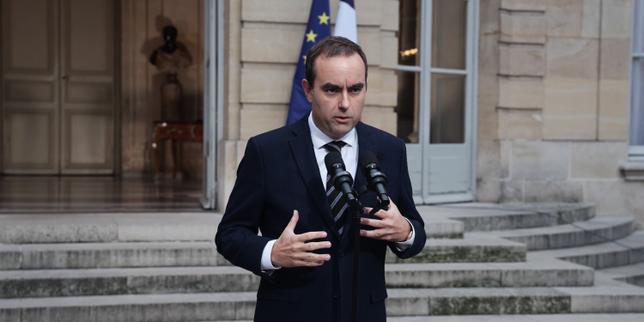Prime Minister Lecornu Abandons Article 49.3 in Budget Passage, Sparking Diverse Political Reactions
Prime Minister Sébastien Lecornu foregoes article 49.3 to pass the budget, prompting mixed reactions from political parties as he faces potential censure.
- • Lecornu announced he will not use article 49.3 to pass the budget without a parliamentary vote.
- • This is the first time since 2022 that article 49.3 will not be invoked amid no absolute majority.
- • Three weeks of consultations with political actors yielded no agreement on a common text.
- • Opposition parties are skeptical, demanding guarantees on pensions and taxation reforms.
- • Lecornu faces a possible motion of censure and calls for compromises among parties.
Key details
On October 3, 2025, French Prime Minister Sébastien Lecornu publicly announced his decision to abandon the use of article 49.3 of the Constitution, which allows the government to pass the budget without a parliamentary vote. This move marks the first time since 2022 that the article will not be invoked due to the lack of an absolute parliamentary majority. Lecornu’s announcement followed three weeks of consultations with political parties and social partners, aiming to foster compromise and responsible collaboration ahead of the 2026 budget discussions (ID: 85220).
Lecornu described himself modestly as “the weakest Prime Minister of the Fifth Republic” and acknowledged the challenges ahead, including facing the threat of a motion of censure as early as next week. Despite serious and technical discussions behind the scenes, no agreement has been reached to advance a budget text without political conflict. He emphasized the need to move beyond media-driven "red lines" and seek practical solutions (ID: 85220).
Political responses to Lecornu’s renouncement were mixed. Supporters within the government majority welcomed the decision as a positive step towards renewing parliamentary debate and fostering constructive dialogue. Marine Le Pen from the National Rally recognized the move as democratic but downplayed it as not representing a major rupture from Macronism. On the left, opposition parties, including the Socialist Party, the communists, and ecologists, expressed skepticism. Boris Vallaud of the Socialists highlighted that despite renouncing 49.3, other legislative tools could still limit debate. They demand concrete guarantees on pension reform and taxation policies. Clémence Guetté of La France Insoumise criticized the government for not addressing core social issues, viewing the move as a mere tactic to buy time (ID: 85329).
Overall, Lecornu’s decision signals a tentative shift towards traditional parliamentary methods and attempts to build temporary majorities amid a fragmented political landscape. It highlights the ongoing difficulties in passing the budget in a divided National Assembly and sets the stage for intense political negotiations in the coming weeks.
This article was translated and synthesized from French sources, providing English-speaking readers with local perspectives.
Source articles (2)
Source comparison
Latest news
Middle East Conflict Sparks Surge in French Fuel Prices Amid Supply Concerns
Macron Announces Major Shift in France's Nuclear Policy with Increased Arsenal and European Integration
French Government Prioritizes Safety of Nationals Stranded Amid Middle East Conflict
French Prisons Reach Record Overcrowding with 86,645 Inmates as of February 2026
Pau's Local Election Campaign Gathers Momentum Amid Broader Political and Economic Concerns
French Companies and Regions Accelerate Efforts in Nature-Related Economic Transition
The top news stories in France
Delivered straight to your inbox each morning.


